Realities of a Female Football Journalist in Croatia: The Good, Bad, and Not So Ugly
August 8, 2022 - What's it like being a female football journalist in Croatia? A look into my life for the last 5 years.
It all started when a former colleague told me I'd never see a press pass for Croatia national team games. Well, it actually started well before that.
I was born with a love for football and likely kicked my way out of the womb. My family history probably has something to do with it.
My grandfather was a sports journalist in Split for Slobodna Dalmacija in his early 20s and friends with many Hajduk players at the time. After swapping Split for NYC in 1958, he became one of the top football referees in New York and worked the line during Santos v. Benfica at Yankee Stadium in 1968. In other words, Pele v. Eusebio. My dad was the ball boy and met the entire Santos team in the locker room, including Pele, who signed his match program. And that wasn't my grandpa's only time reffing Pele, either.
A few years later, my grandpa was chased down the streets of New York by the unhappy fans of a local Italian club. I guess they weren't pleased with his decisions during the match. The incident even prompted Split's most famous journalist (and my grandfather's dear friend), Miljenko Smoje, to write about it in Slobodna Dalmacija.
"If Miro wanted to get chased by fans, he should have stayed in Split."
My dad went on to play football, attended the 1974 World Cup in Germany as a fan, and was a coach in San Diego. He and my grandpa raised a team of players in my small hometown of Fallbrook, developing their talents from the ages of 10 to 18. It was only a matter of time before I swapped ballet shoes for Copa Mundials.
My football career started at the age of six, playing recreational soccer for a team called the 'Spiders.' Often seen dancing on the pitch and confusing my ballet talents with what I was meant to do with a ball, I ultimately had to choose between ballet or soccer. Soccer won primarily because of the friendships I had made at the time. In ballet, everyone was looking out for themselves.
I played competitively in San Diego from that point on, with practice three times a week, tournaments every weekend, and parents who had to sacrifice any free time they had. It took me to the Gothia Cup final in Sweden, Varsity all four years of high school, and friendships that turned into sisters to this day.
Opting out of playing in college, my football career ended at 17, opening space for other things - like moving to San Francisco. But my love for football never dwindled, and I never missed a Hajduk match at Poljud during my summer visits to Croatia or cheering for the national team in the Euros or World Cup no matter where I was and no matter what time the games were.
Fast forward to 2015. I move to Croatia, can attend every Hajduk home match of the season, and catch the Croatia national team playing around the country during international breaks. This was heaven. One year later, I joined Total Croatia News as the editor of Total Split. The sports editor position had already been filled, but we decided that I would write about specific events, which was how I eased my way in. I took over as Sports Editor in 2017 and told myself I would make the most of it.
I had been writing about sports for maybe a month or so, getting my bearings around handball, water polo, and other sports I wasn't all too familiar with. What I knew was football, and what I wanted to write about was football, but I had to grip the ropes of all sports to justify my place in this role. Croatian athletes also excel in almost everything, meaning I had much to learn.
The Croatia national team had a World Cup qualifier against Ukraine in Zagreb that March, which made me think: "Why couldn't I attend as a journalist?" Considering my new role and all. I sent a message to my colleague and asked if he knew about the protocol for applying.
"I wouldn't even bother - you'll never get a press pass for Croatia games."
Okay, that was encouraging. I knew I was young (26 at the time), a woman, and new to this whole thing, but to shut someone down so quickly was not something I'd stand for. I found out how to apply through HNS, did, and waited for a reply. I was an accredited journalist at my first official international football match on March 24, 2017.
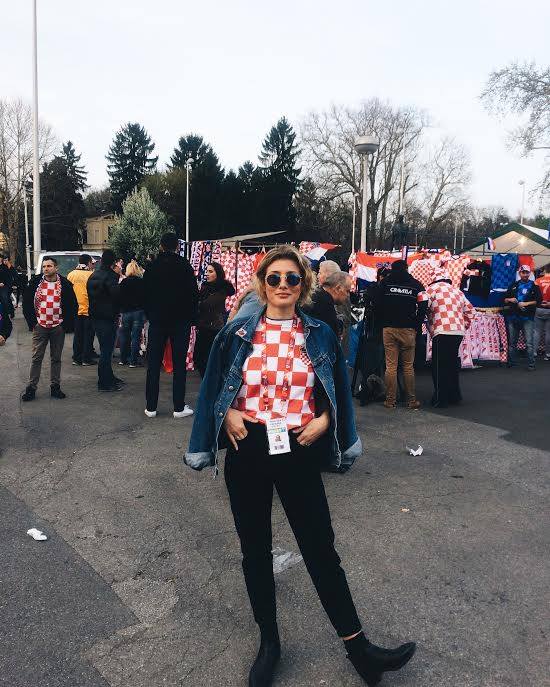
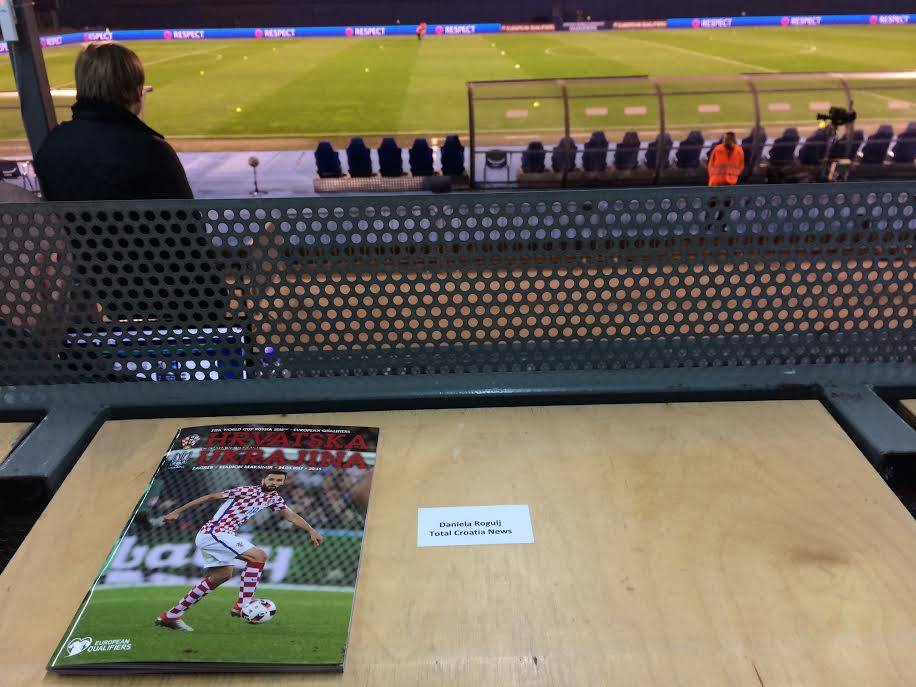
The season press pass for Hajduk came shortly after that, and I covered my first Europa League campaign between Hajduk and Everton - at Goodison Park in Liverpool and Split.
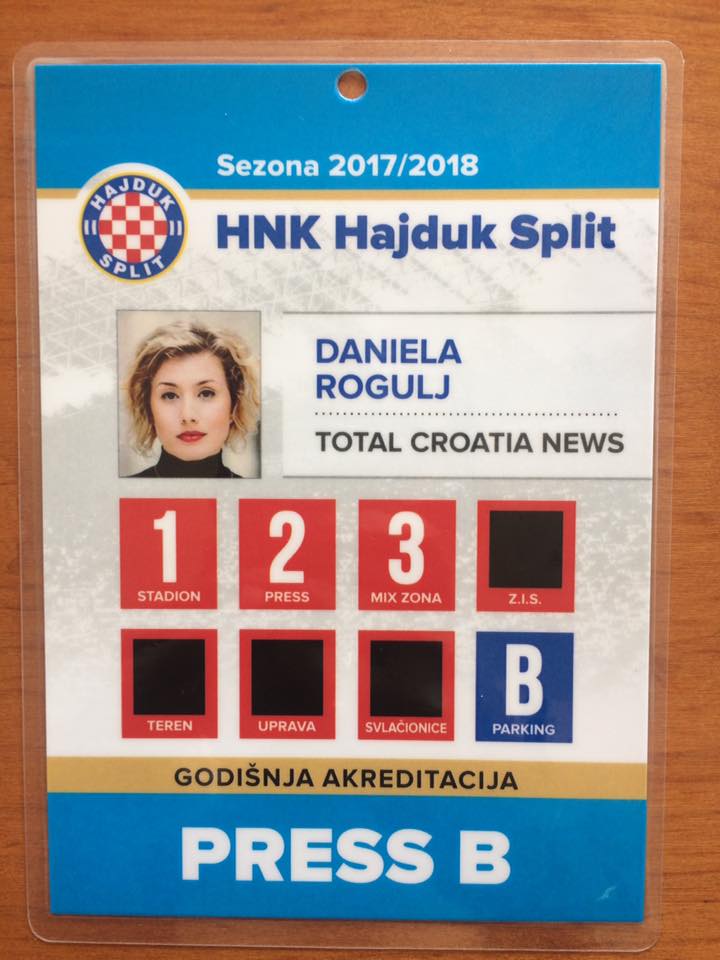
I was maybe in over my head covering my first away match, considering it was Wayne Rooney's Everton at the time. While I will never forget the euphoria amongst the fans of your club in another city, the feeling inside a Premier League stadium for the first time, and watching Nikola Vlašić against Rooney, what really got me was the return match a week later.
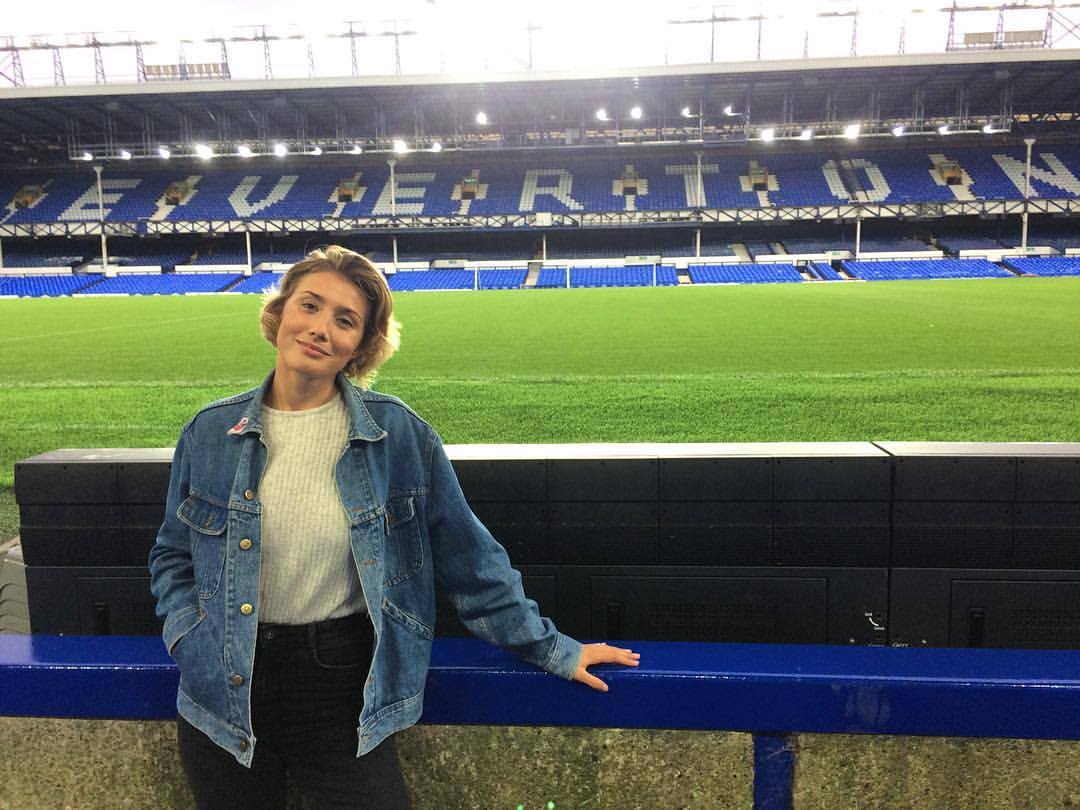
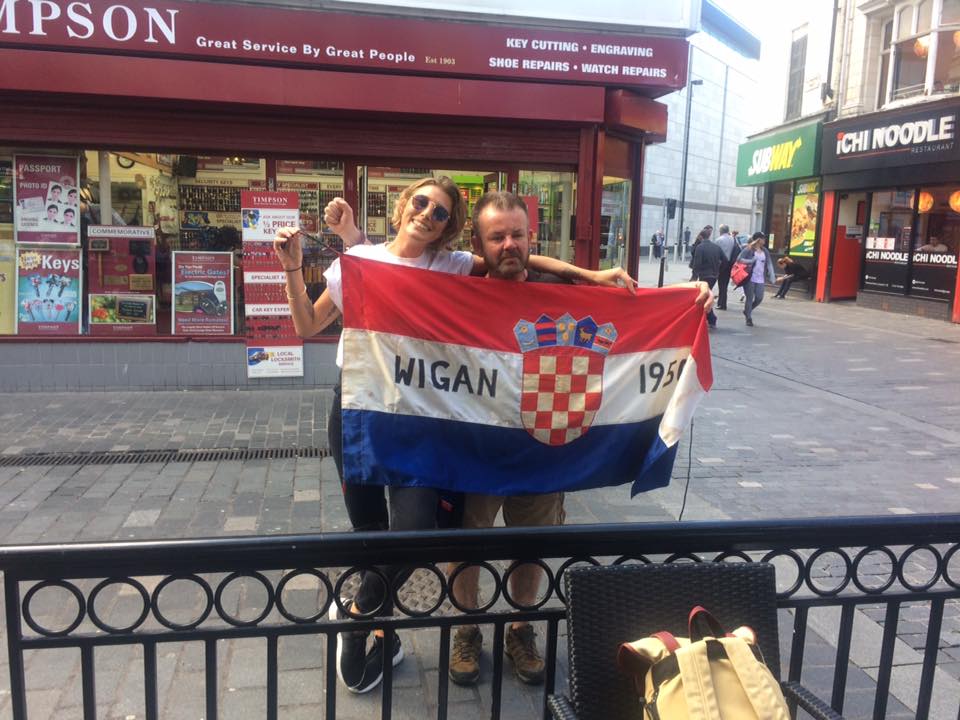
I nearly fainted in the press box when Radošević scored a screamer against Everton at a sold-out Poljud. It had never been louder. And not advancing past Everton didn't matter. From that moment, there was no turning back.
I wanted to be a football journalist.
Later that year, Croatia continued their World Cup qualifiers. After an unimpressive 1:0 against Kosovo at a flooded Maksimir (so flooded that the game had to be stopped and finished the next day), the next match was the one that mattered, and Croatia needed a win against Finland.
The match ended 1:1 at Rujevica, forcing coach Ante Čačić's sacking and Croatia's fate at the 2018 World Cup uncertain. It was as if the life was sucked out of Rijeka, and Croatia, that night, though it was the draw that changed it all. And likely the most depressing post-match press conference I have attended.
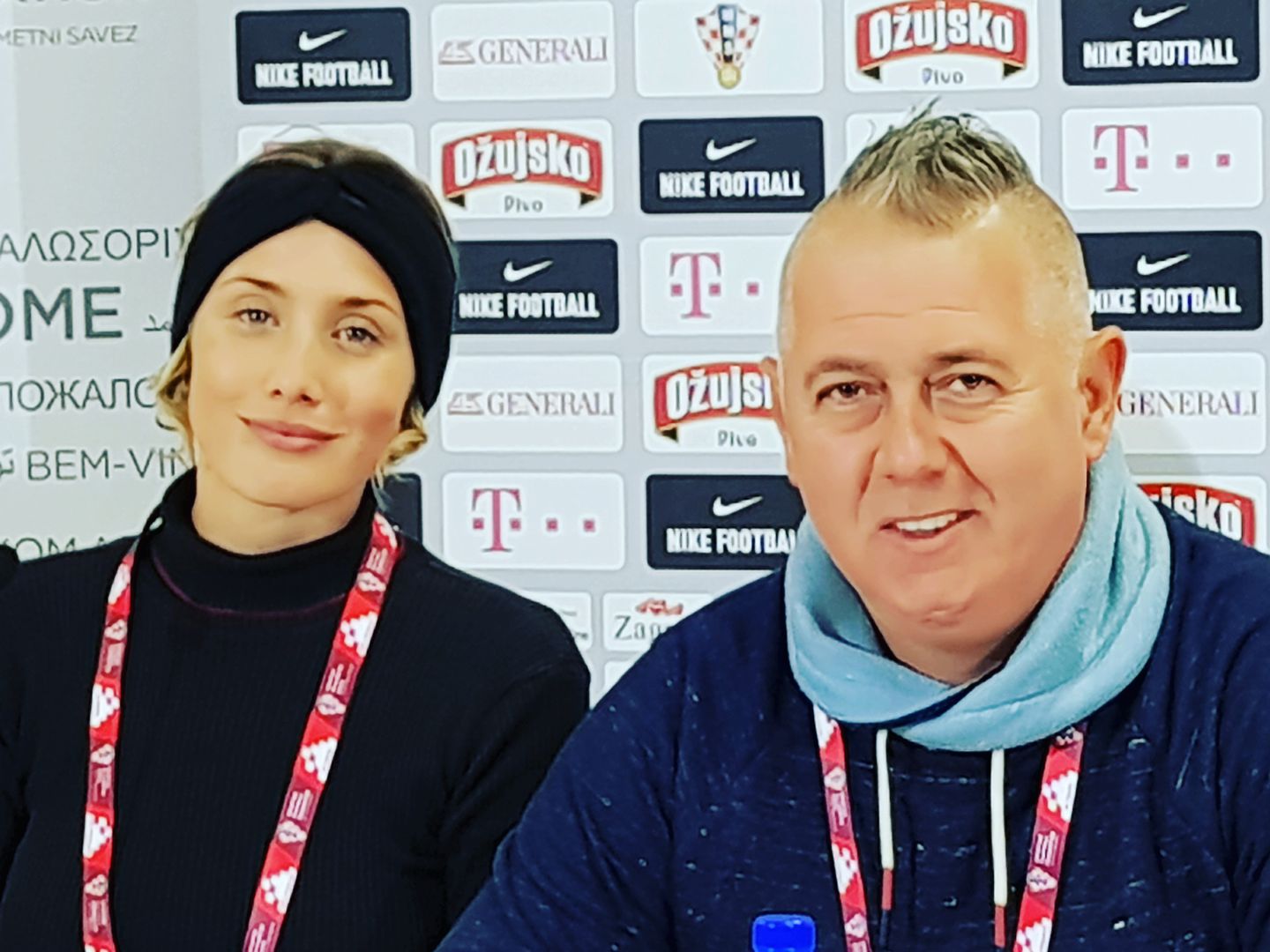
But there was hope when the relatively unknown Zlatko Dalić came in to save the day, winning 2:0 away against Ukraine and pushing Croatia into the World Cup qualifying play-off against Greece. Croatia was going to the World Cup, and the chaos of writing through these qualifiers certainly took a few years off my life.
As I was still quite new at this, I didn't expect to get a press pass for Russia, and looking back; I would not have wanted to be anywhere but Split that summer of 2018. But I definitely was not prepared for what was in store.
Okay, the World Cup is a big deal. Still, considering Croatia's rather frightening display in the qualifiers, I don't think Croatia fans expected too much - and with tensions still high between Hajduk fan group Torcida and HNS, many were hesitant to get too excited in Split. "Maybe that'll take off some of the pressure," I thought. And then Croatia beat Argentina 3:0.
I knew I had to prove myself on the international stage reporting about the World Cup for Total Croatia News, as it was the biggest tournament I had covered thus far. Getting your fingers to type fast enough when covering these matches live is hard enough, but it's another thing when your country is at stake and you owe a quality match report to the enthusiastic Croatian diaspora, even during those nail-biting extra-time finishes and penalty shootouts. How I survived that, I'll never know.
But there was another layer to my football journalism that summer - radio interviews.
Given TCN's non-stop coverage of Croatia at the World Cup, coupled with Croatia's impressive play and Modrić and Lovren's fresh perjury charge in the Mamić case, all eyes were on Croatia that summer. And being one of few covering Croatia at length in English, my phone started ringing - especially once Croatia was matched up against England in the semi-final.
I thus became the Croatian correspondent for several radio stations in the UK that summer, one of which is the largest sports radio station in the world - talkSPORT. I counted over 20 radio interviews once all was said and done and Croatia became the 2018 World Cup finalist. I realized just how important it was to be a native English speaker and football journalist in a foreign country - especially when you're on the international stage.
Later that year, I had my first star-studded press experience at Wembley Stadium, when England gained revenge on Croatia in the UEFA Nations League, and even went into the TalkSport studio in London to recap the match.
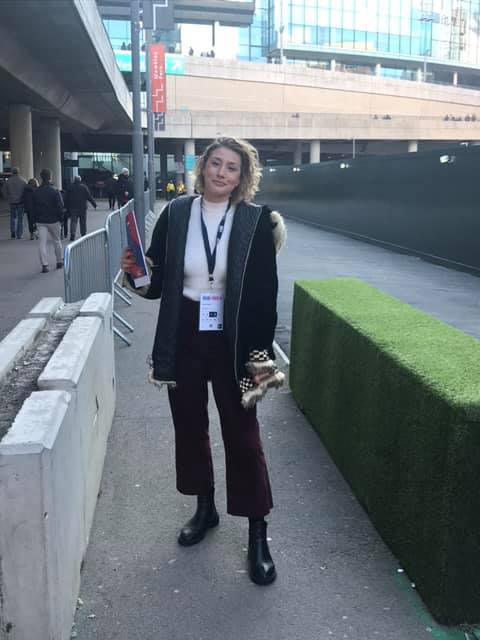
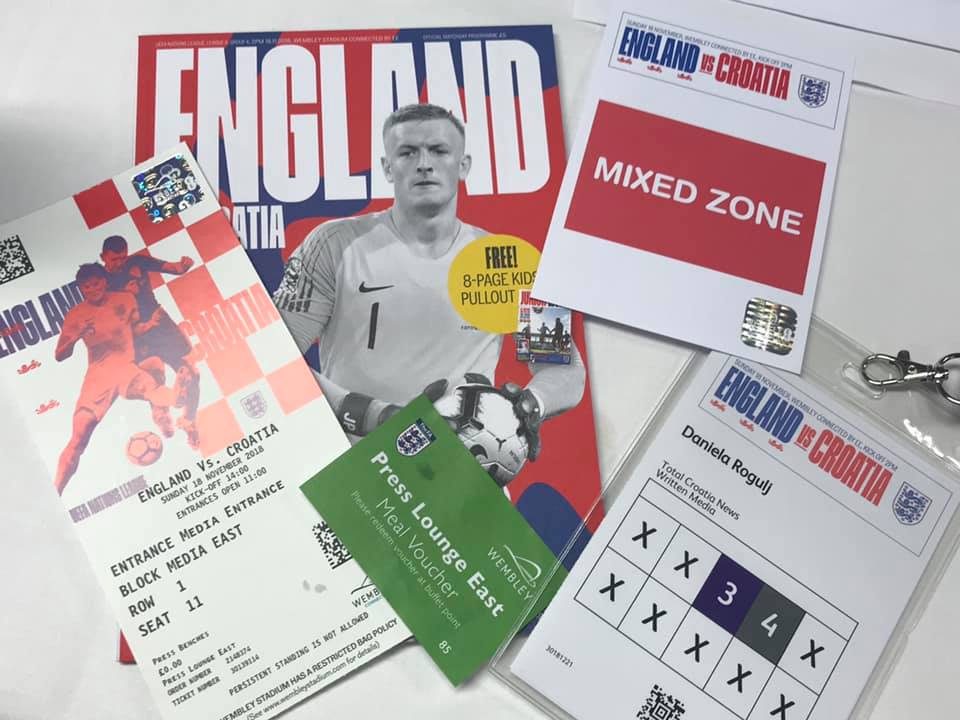
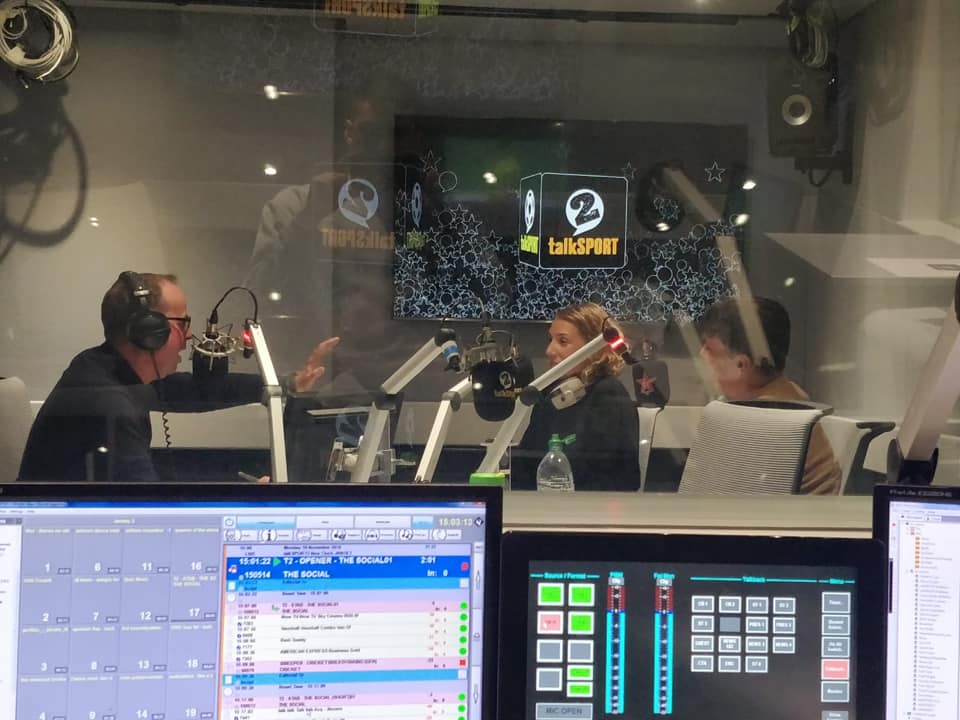
2018 ended with an interview request from BBC. And a year after that, I interviewed THE Mark Bosnich in Sydney, Australia thanks to Total Croatia News.
Covering football during the pandemic was not nearly as fun, but being amongst the select few allowed at a stadium when the ban on fans was still in force definitely brought necessary excitement to staring at the walls of your house.
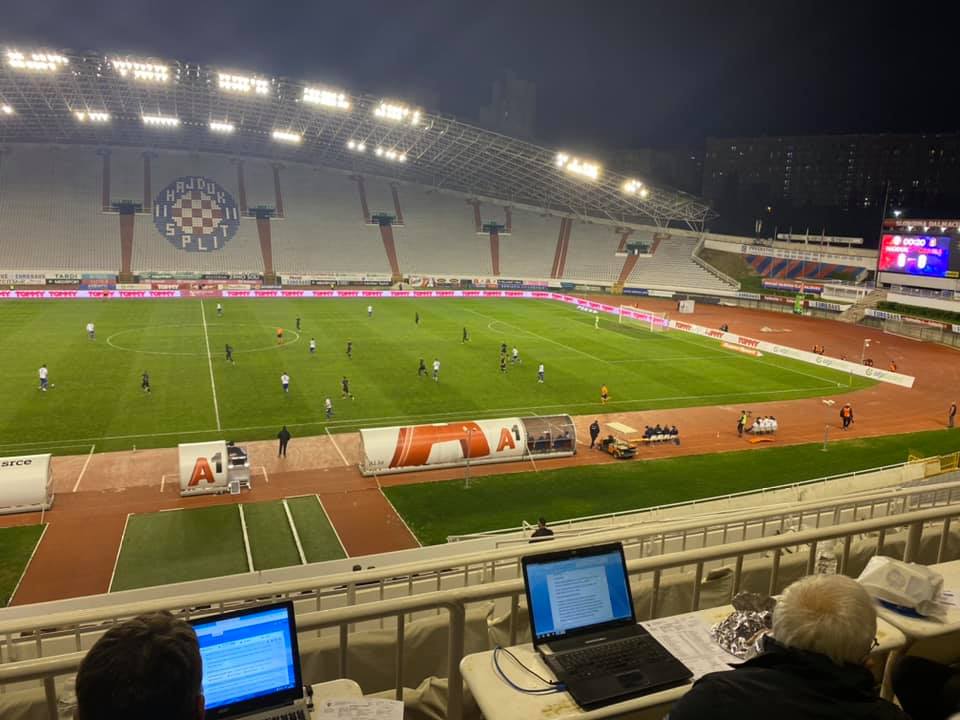
And seeing Cristiano Ronaldo in action on Hajduk territory holds a special place in my heart.
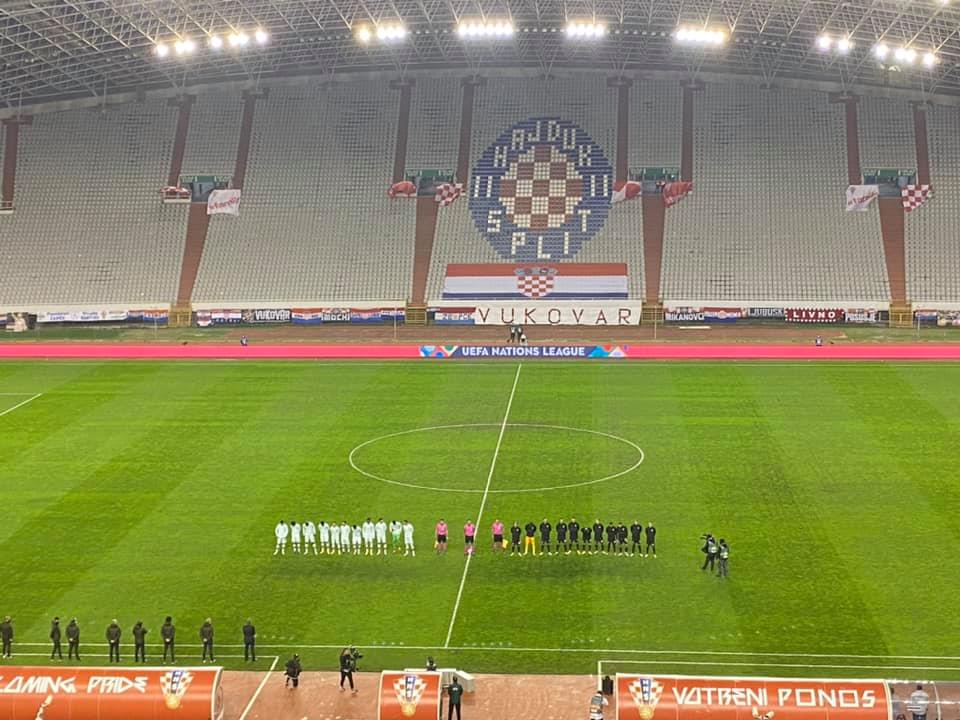
As Nations League continued, so did qualifiers for the 2020 Euros, which Croatia clinched at Rujevica Stadium against Slovakia. With the tournament postponed by a year and a press application process that had to be repeated multiple times due to tournament delays, I wasn't feeling too confident that I'd be attending this one. But less than a month before the tournament began, I got the email:
CONFIRMED: Accreditation Request for UEFA EURO 2020.
And I was off to cover my first international tournament.
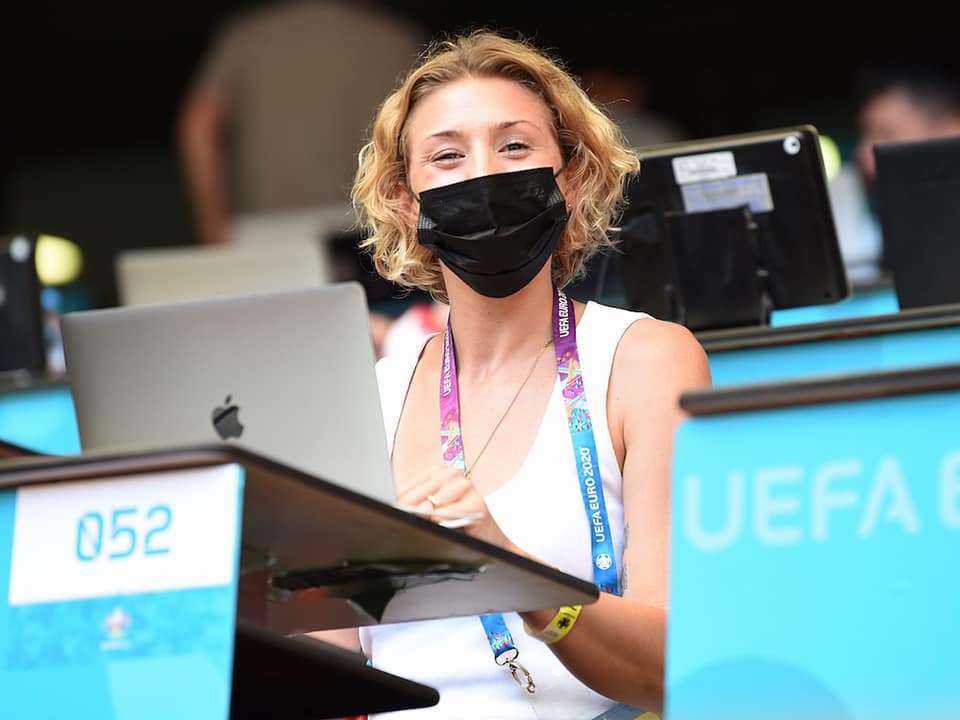
With the tail-end of the pandemic making it an absolute nightmare to make this happen, I persisted. After vaccinations and repeated Covid tests, exemptions from UEFA needed even to enter the UK, and QR codes necessary to grab a bite in London and Glasgow, I was one of few Croatian journalists that endured a Covid-riddled EURO 2020, covering Croatia from London to Glasgow and Copenhagen. And I was one of few women journalists at all.
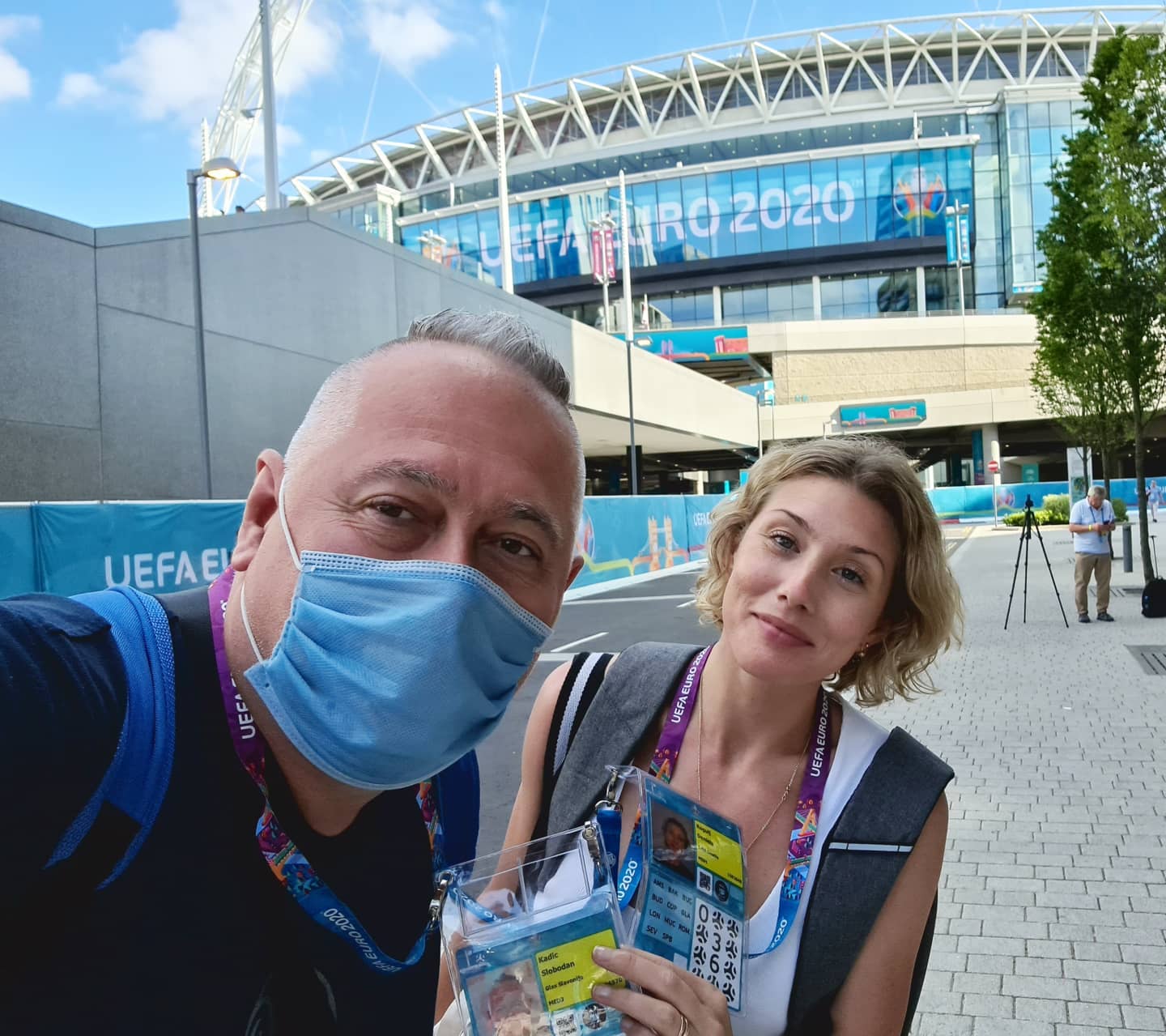
The round of 16 match against Spain was undoubtedly the highlight, especially when a fan launched a full beer at my laptop after Croatia took the game to extra time at Parken Stadium. While I could have lost my job had my laptop died and I couldn't finish writing about that game, I would have left the Euros satisfied.
And while international football has given my career an unexpected boost, the best football experiences are the ones at home, at Poljud Stadium. Especially when you witness Hajduk win their first trophy since 2013, in the Croatian Cup final, just a few months ago.
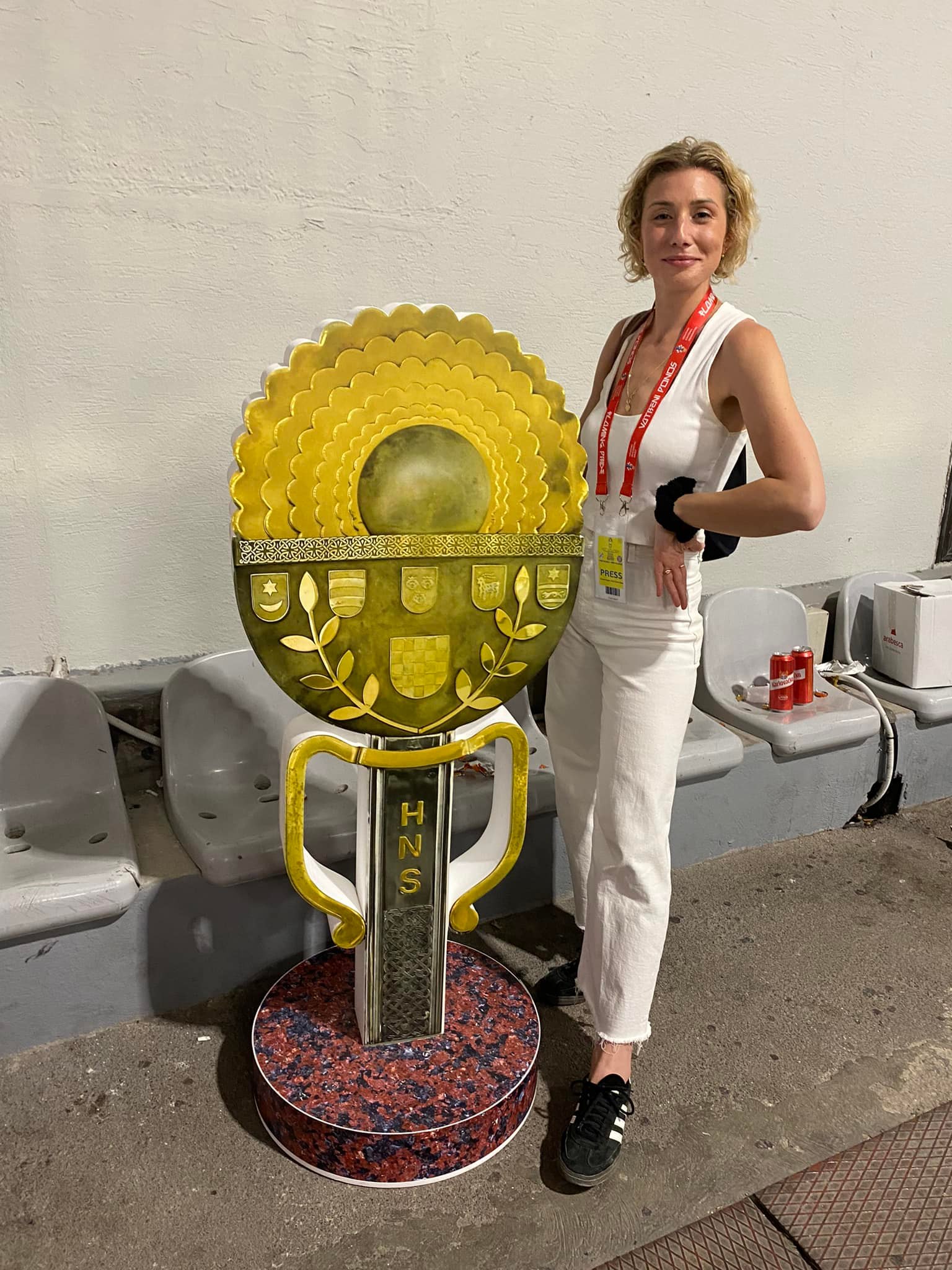
What has being a female football journalist in Croatia taught me?
That anything is possible in Croatia, so long as you put your mind to it, especially when you love something as much as I love football. If you're passionate enough about something, it will show in your work, which will ultimately be recognized. In my case, my passion brought me to an international stage that 26-year-old Daniela would have never believed possible. Now, if I get a press pass for the World Cup in Qatar this year...
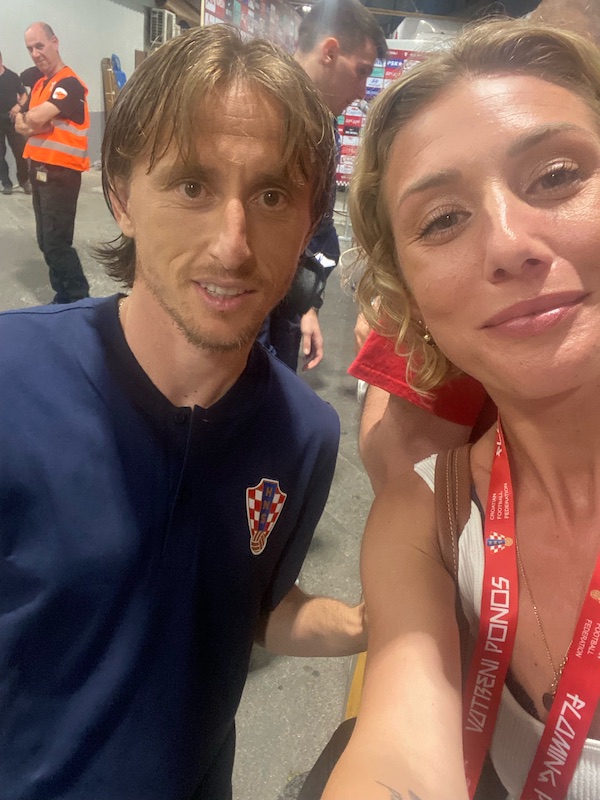
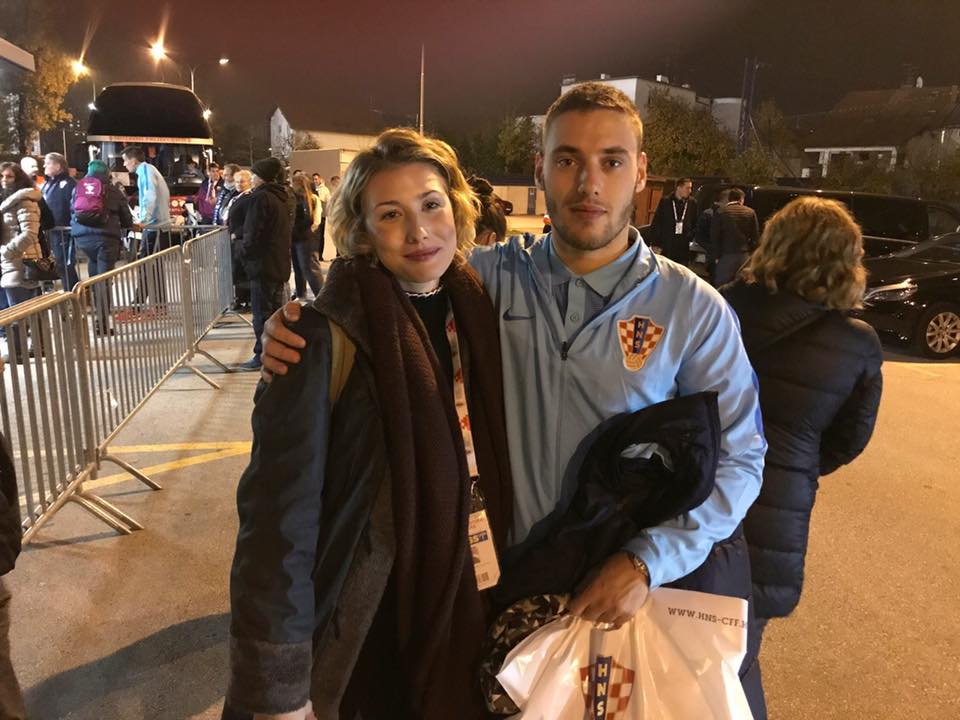
Secondly, being a woman in a man's world is empowering. No matter which match I attend in Croatia or around Europe, I am always one of few women, if not the only, reporting from the press box. I have not been treated differently, nor have my opportunities been any different. The radio shows prove that - and TalkSport even called me a Croatian football expert. Even with my silly Californian accent.
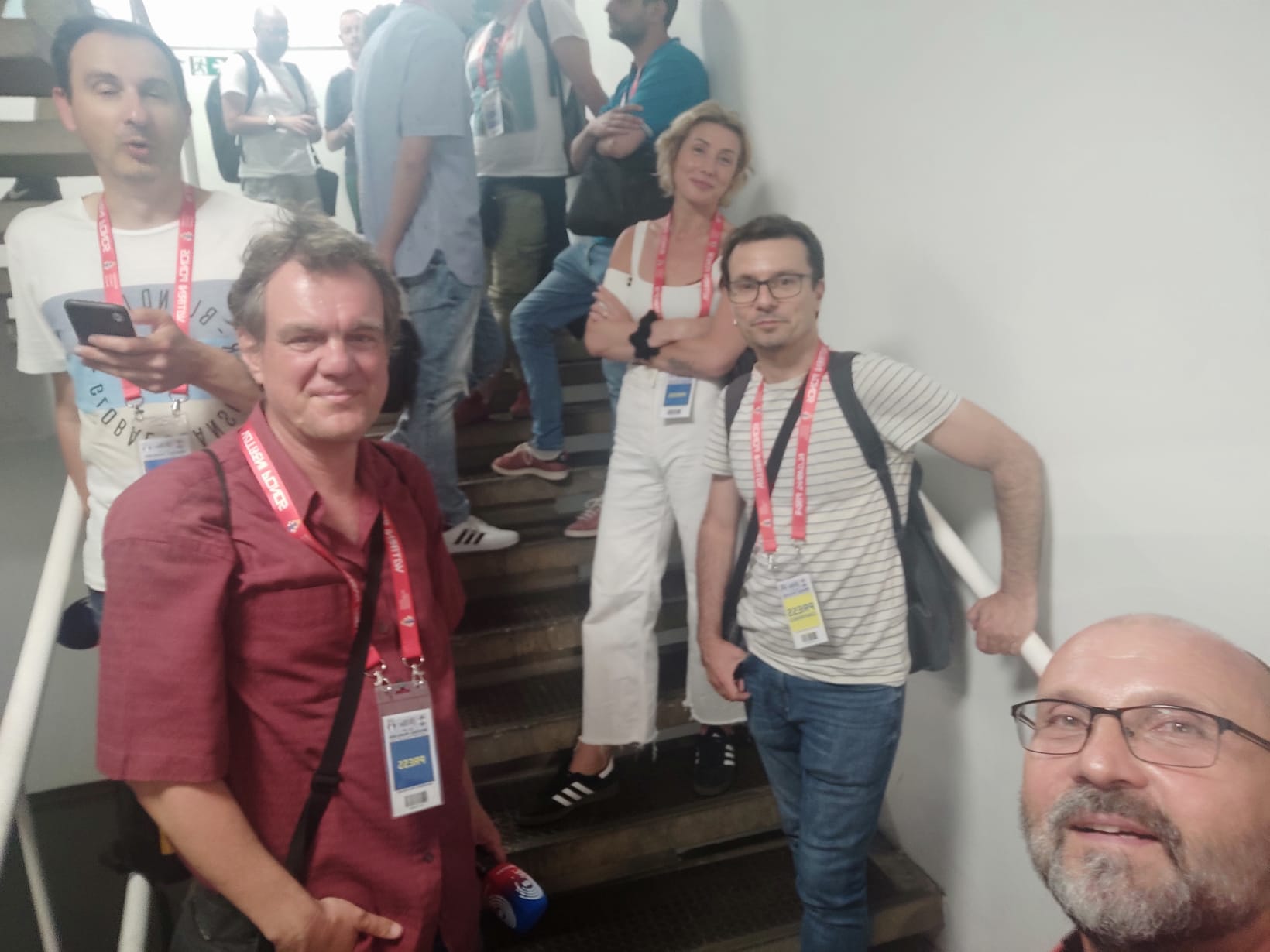
And finally? Don't listen to your colleagues. At least when they tell you that you can't do something. You should always set out to prove people wrong. Football, especially, has that effect on people.
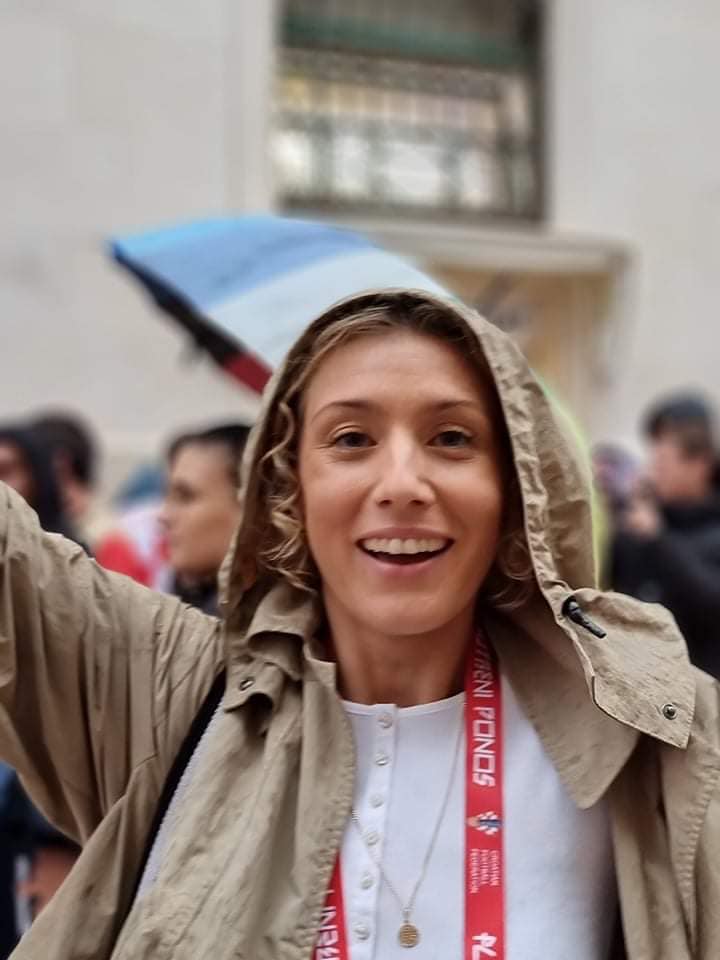
To follow the latest sports news in Croatia, follow TCN's dedicated page.
Liverpool FC Take Croatian National Football Shirt Design For Next Season
Friday 11 September 2020 - “Imitation is the sincerest form of flattery” as Liverpool FC take Croatian National Football Shirt design for the next Premier League
You might have thought that the UK Premier League champions were all but finished with Croatian football. This summer they let go Dejan Lovren from their ranks, shipping the Croat off to FC Zenit Saint Petersburg for a price widely thought to be €12 million. However, your thoughts may well have been wrong.
Recent images reveal that their ties with Croatia are not so nearly over, as Liverpool FC take Croatian National Football Shirt design for the next season.
Could it be an acknowledging nod of respect? Could they be trying to steal some luck in order to keep the most-cherished title in English football? Could it be a coincidence?
The latter is less likely when you consider that the sponsor for each shirt is one and the same - Nike. Whatever the reason, Croatian football fans – and, indeed, some Liverpool FC fans – were quick to spot the similarity. Comments were soon made by both on Liverpool FC's social media.
“We might as well have played with a Croatian away kit.” wrote one Liverpool fan, early in the comments. At the time of writing, his observation was 'liked' by almost 200 Liverpool FC supporters. Football fans from all over the world are familiar with the Croatian away shirt, having seen it repeatedly at the last World Cup.
“So we've got the same goalkeepers top as England and now we've also got Croatia's away shirt.” wrote another fan. Others also made a link between the departed Lovren and the fact that Nike sponsors and manufactures the shirts for both teams teams.
Further new acquisitions for Liverpool FC this summer include Greek left back Konstantinos Tsimikas, bought for a similar price for which they allowed Lovren to go. The team also has no less than seven young players arriving back at the club, following loan spells which were considered key to their development. Liverpool Under 23 players Curtis Jones is also expected to take the leap into the first team in the approaching season. Will this be enough to fend off the super-spending Manchester City, Chelsea, and Manchester United for yet another year?
At least one Croatian fan spotted the similarity too. Dino, who commented on Liverpool FC's Facebook post, was not in the mood for poetry or jokes.
For the latest travel info, bookmark our main travel info article, which is updated daily.
Read the Croatian Travel Update in your language - now available in 24 languages


